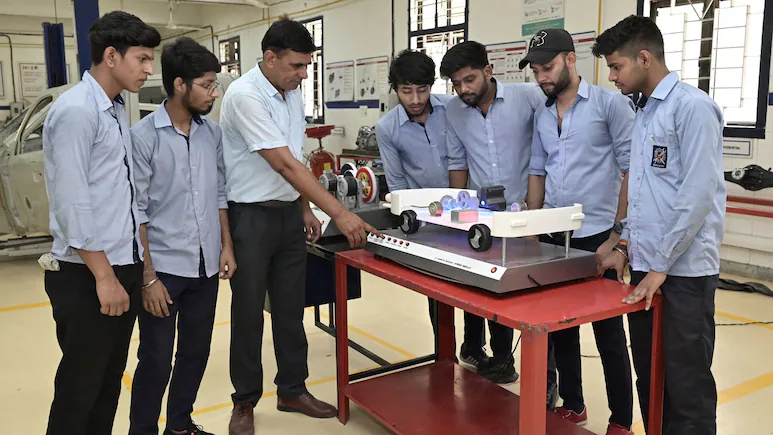New Delhi, May 27, 2025 — In a strategic push toward strengthening India’s electric vehicle (EV) ecosystem, Maruti Suzuki India Limited (MSIL), the country’s leading carmaker, has initiated a nationwide training program for technicians, focused on handling high-voltage electric vehicle systems.
The initiative is part of Maruti Suzuki’s broader effort to upskill its workforce as it prepares to enter the EV market, beginning with the highly anticipated launch of its eVX SUV by 2025.
“We aim to empower our technicians with the knowledge and tools required to safely and efficiently service electric vehicles. This program is designed to build trust in EV ownership by ensuring world-class service standards,” a Maruti Suzuki spokesperson stated.
A Nationwide Upskilling Program
The training will be conducted at 20 Maruti Suzuki Training Centres located across India, covering service professionals from both Arena and Nexa dealership networks. The program includes modules on:
- High-voltage EV architecture
- Lithium-ion battery safety
- Electric powertrain diagnostics
- Safe handling and isolation protocols
- Preventive and corrective EV maintenance
Each session combines classroom instruction with hands-on simulation, using advanced diagnostic tools and mock high-voltage equipment to replicate real-world service scenarios.
Preparing for India’s EV Transition
The move comes at a time when India is aggressively pushing for electrification in the mobility sector. With government schemes such as FAME II and rising consumer interest in EVs, the demand for a skilled workforce trained in EV technology is surging.
Experts believe Maruti Suzuki’s proactive strategy positions it well to meet the evolving needs of the automotive landscape. “EVs are not just about new cars; they demand a new approach to service and maintenance. Training technicians now ensures smoother adoption later,” said an industry analyst.
Aligning With Sustainability Goals
Maruti Suzuki’s training program also supports India’s commitment to reducing carbon emissions and promoting sustainable mobility. By enhancing service infrastructure readiness, the company is laying the foundation for a safer and more efficient EV ownership experience.
As Maruti Suzuki gears up for its debut EV, initiatives like this are critical in ensuring customer confidence, technical reliability, and after-sales service quality—factors that play a decisive role in EV adoption.
Conclusion
The high-voltage EV training program reflects Maruti Suzuki’s forward-looking vision for India’s electric future. By investing in technician education and safety preparedness, the company is not only aligning with global standards but also setting a benchmark for the Indian automotive industry.



